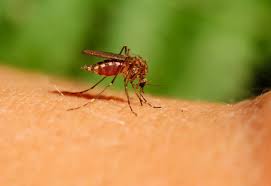


Mosquitoes, those ever-present companions during summertime, may have varying effects on us as we grow older. Recent studies have revealed an intriguing connection between age and shifts in our body’s reactions to mosquito bites.
As we journey through life, our immune systems evolve, and so do our responses to various environmental factors, including insect bites. Studies have shown that there is a significant correlation between age and the body’s reactions to mosquito bites.
Younger individuals, often with more robust immune systems, tend to experience milder reactions to mosquito bites. Their bodies are swift in recognizing and neutralizing the foreign substances injected by mosquitoes during a bite, resulting in reduced itching, swelling, and discomfort.
However, the scenario changes as we grow older. The immune response becomes less aggressive, and our bodies may not react as promptly to mosquito saliva. This can lead to more pronounced inflammatory reactions, causing the familiar itchy welts that often follow mosquito bites.
Furthermore, the immune system’s aging process might influence the body’s ability to fend off mosquito-borne diseases. Older individuals might find themselves at a higher risk of contracting diseases like West Nile virus or dengue due to the altered immune response.
Understanding the intricate relationship between age and mosquito bite response is crucial, especially as mosquito-borne diseases continue to pose significant public health challenges. This knowledge can aid in tailoring preventive strategies and medical interventions for different age groups, ultimately minimizing the impact of these diseases.
In conclusion, the connection between age and changes in how our bodies respond to mosquito bites highlights the dynamic nature of our immune systems. This research sheds light on the underlying mechanisms that drive these responses and emphasizes the importance of age-adapted approaches to mosquito bite prevention and disease management. As we navigate the summer months, let this newfound understanding inspire us to protect ourselves against those pesky mosquito encounters.
The author is a Nutritionist.